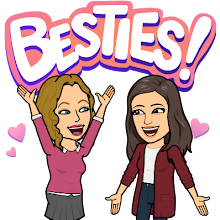Action Research Plan
Goals: To determine what, if anything, will motivate the students of Forney ISD in grades 5-12 to bring their laptops to school on a regular basis.
Action Step(s):
1. Observe students at the beginning of the year to see how many are bringing their laptops to class.
2. Interview teachers to see what types of issues they are having with students and their laptops.
3. Determine what motivates students to want to use their laptops other than just for playing games.
4. Find out how the laptops are being utilized in the classrooms and determine the hook that is or will get students to bring their laptops to class.
5. Conduct a survey of students and teachers 3 times throughout the year to see how things are progressing and what the current issues are.
Needed Resources:
1. Time to observe and interview students and teachers
2. Survey/data collection
3. Students and teachers to observe and interview
4. Various motivation tactics
Timeline: Sept 2010 – May 2010
Person(s) Responsible: Myself, Renee Setser, Technology Coordinator; other Technology Facilitators, teachers and students involved
Monitoring goals: I plan to monitor the success of this research by being able to see that the laptops are being integrated daily in the classrooms and students are being successful and actually bringing them to class. I would like to identify at least one specific motivator each month that is proving to be successful.
Evaluation: In order to evaluate this research I will need to conduct a before and after survey that shows an increase in use and student motivation. I will also make weekly observations of the classes in hopes to see more student use with the laptops. I will need to communicate my results with the Technology Coordinator as well as the teachers and the administrators.
Saturday, July 31, 2010
Sunday, July 25, 2010
Common Action Research Topics
This week I have a much better understanding of action research and how it can be applied. It was helpful to look at some specific examples of action research in each of the nine identified areas from the Dana text, "The Passions that Drive Your Journey". It was also interesting to look at these topics from the view of a principal and to understand a different perspective and how it possibly differs from that of a teacher. I was also able to focus on my action research topic by discussing possibilities with my supervisor. I now feel that I am more focused on my research topic.
Friday, July 16, 2010
How Can Educational Leaders Use Blogs?
Blogs are a great way to communicate with a specific audience. A blog can be considered as an online journal and it is very easy to maintain. Blogs engage people in knowledge sharing and reflection. They also allow users and readers to respond, to create, and to connect. Educational leaders can use blogs to communicate with their students, parents, staff, and the community. Blogs can be used to post class announcements, discussion topics, and assignments. Blogs also allow for linking to certain websites and can even perform as a collaborative tool for student projects. Blogs can enhance learning, motivate students, and foster collaboration beyond the traditional walls of the classroom. The uses for educational leaders and blogs is endless.
What is Action Research and How Can it Be Used?
Action research is both an approach to problem solving and a problem solving process. It is a way of learning more from practice by questioning, listening, watching, acting, analyzing and reflecting. Action research can be done in a formal way with results which can be shared across contexts or it can be conducted informally as a way of learning from and improving one's practice.
Action research gives teachers the skills that they need to work on specific problems directly related to their classrooms or schools. Through the use of Action research, teachers can resolve their own teaching challenges. They learn how to ask a focus question, define terms, collect data, use an analysis process that rules out bias, and includes methods that are reliable and valid. The findings become immediately applicable to their individual situations.
When conducting Action research one must first decide on a focus, then develop a plan to gain insights, analyze the data by looking for patterns, and then finally report what has been learned. Once teacher research has been shared it allows for further action on the part of the teacher. Examples of ways to use Action research are: exploring how to use more writing in the Chemistry class, exploring ways to use more inquiry learning in the classroom, or exploring how to introduce open-ended inquiry science into teaching.
http://ccar.wikispaces.com/Action+research
Action research gives teachers the skills that they need to work on specific problems directly related to their classrooms or schools. Through the use of Action research, teachers can resolve their own teaching challenges. They learn how to ask a focus question, define terms, collect data, use an analysis process that rules out bias, and includes methods that are reliable and valid. The findings become immediately applicable to their individual situations.
When conducting Action research one must first decide on a focus, then develop a plan to gain insights, analyze the data by looking for patterns, and then finally report what has been learned. Once teacher research has been shared it allows for further action on the part of the teacher. Examples of ways to use Action research are: exploring how to use more writing in the Chemistry class, exploring ways to use more inquiry learning in the classroom, or exploring how to introduce open-ended inquiry science into teaching.
http://ccar.wikispaces.com/Action+research
Subscribe to:
Comments (Atom)
